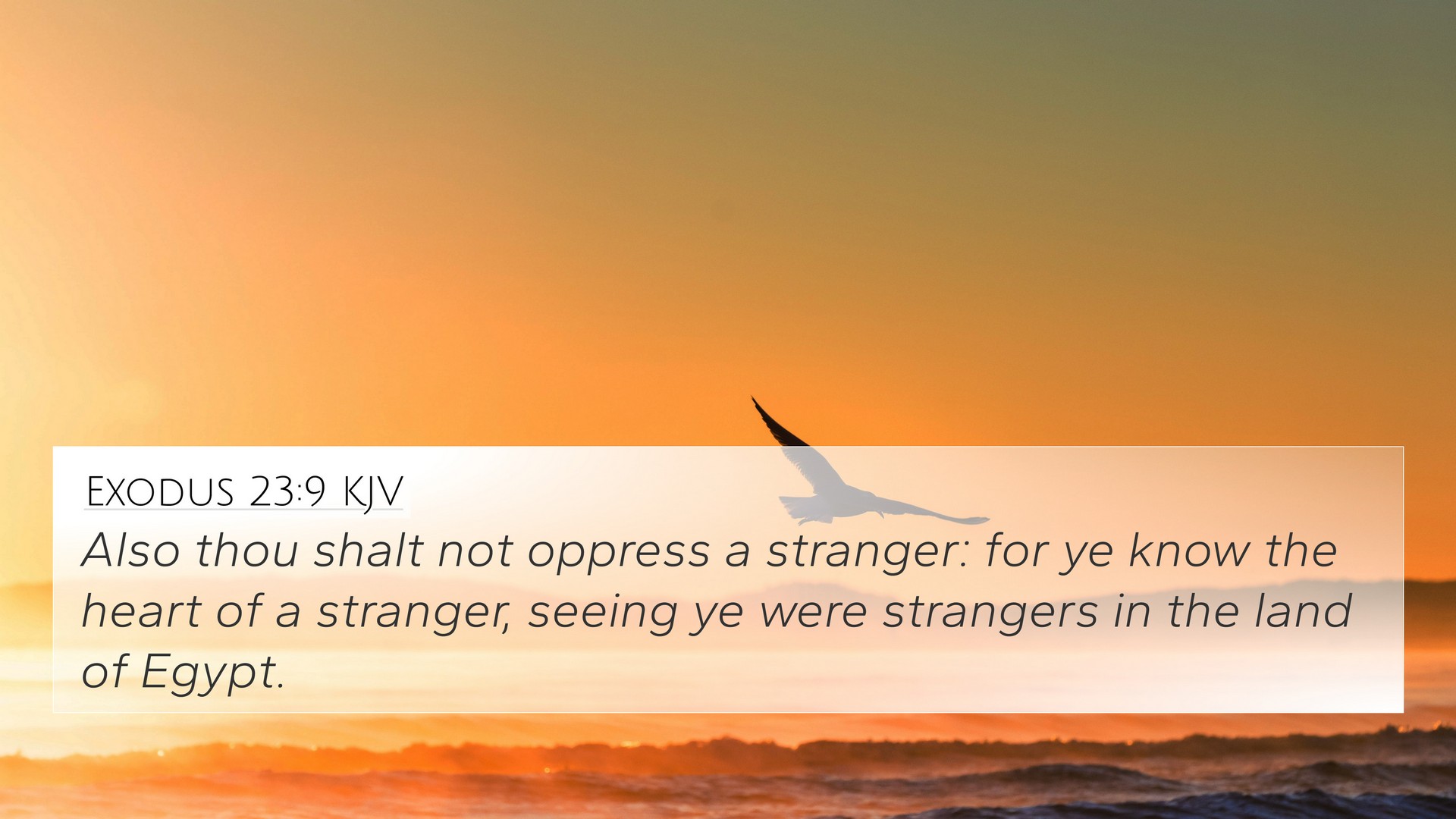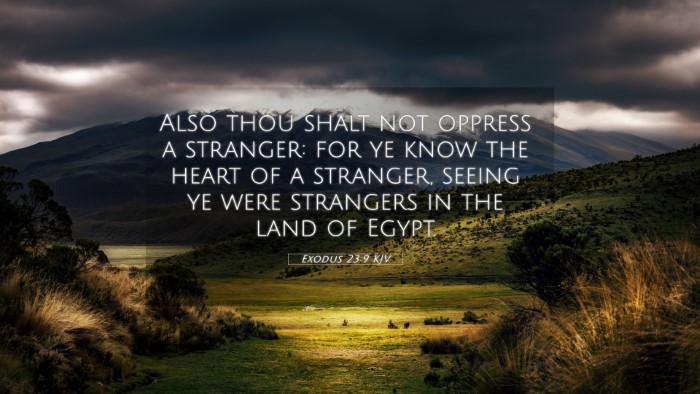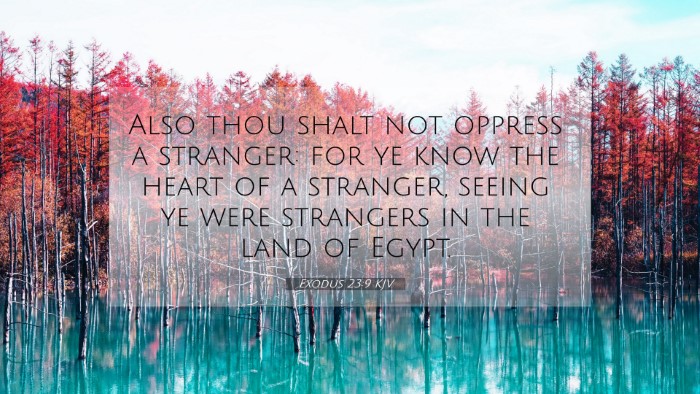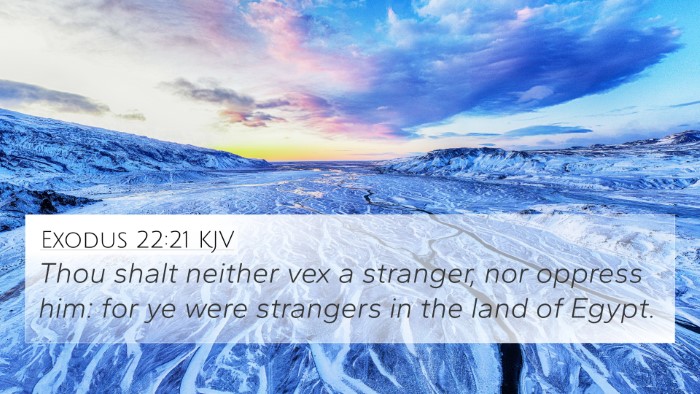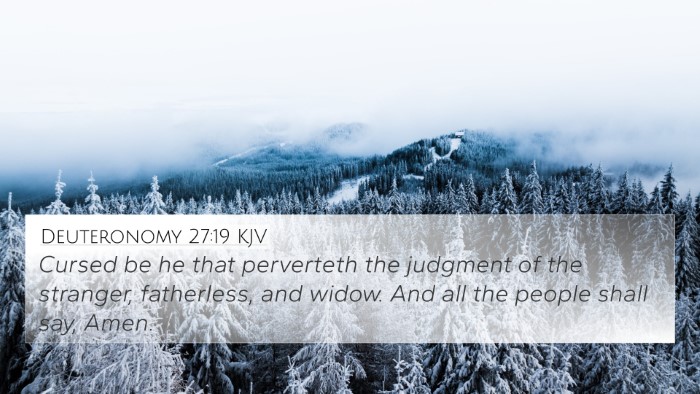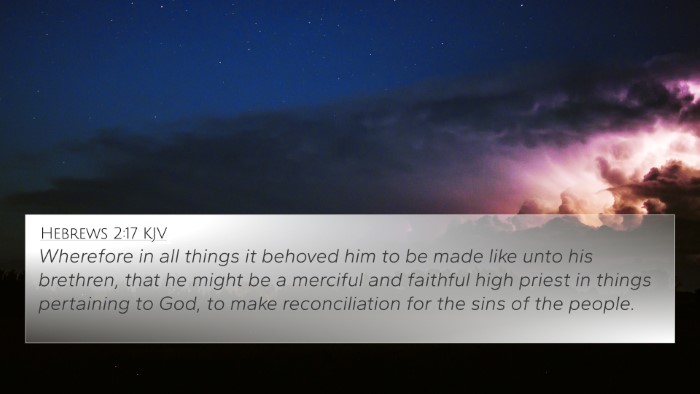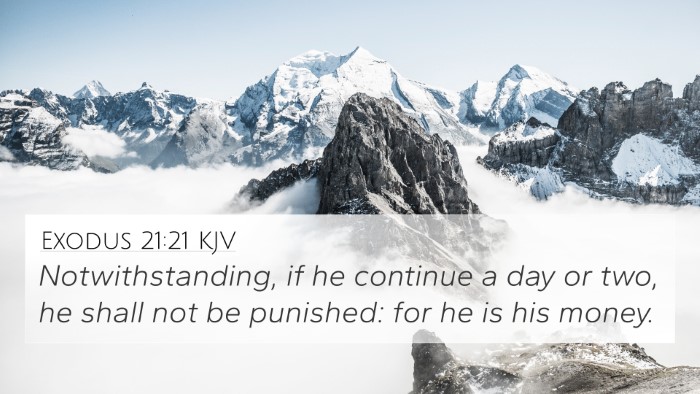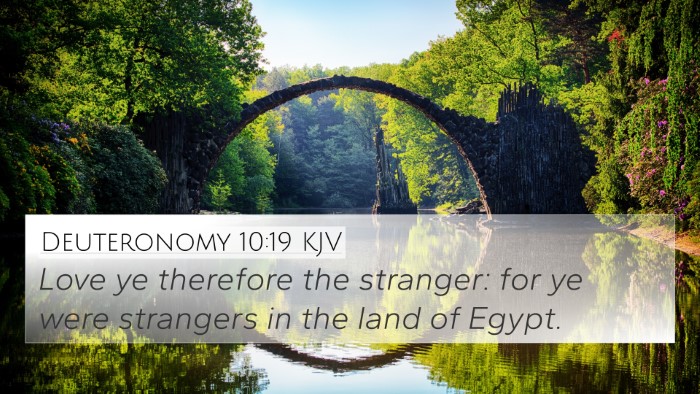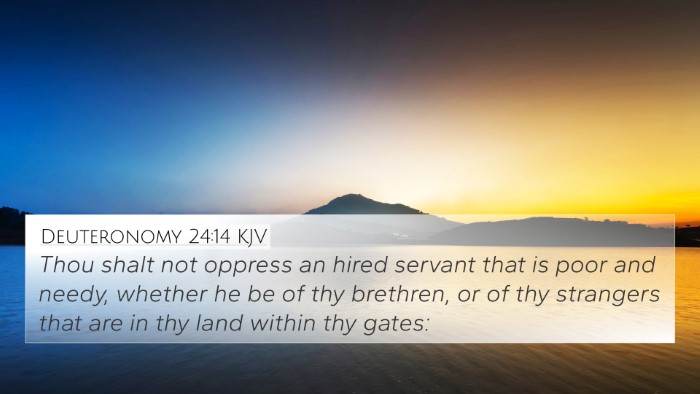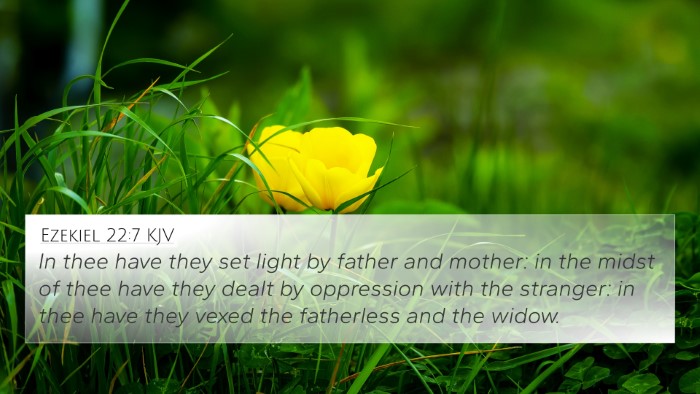Understanding Exodus 23:9
Exodus 23:9 states:
"You shall not oppress a stranger, for you know the heart of a stranger, because you were strangers in the land of Egypt: I am the LORD your God."
In this verse, God instructs His people on the importance of empathy and compassion towards strangers, emphasizing their own historical experience as strangers in Egypt. This command reflects a significant moral principle in the Scriptures – the call to love and protect the vulnerable.
Summary of Insights from Public Domain Commentaries
This summary draws on the insights from reputable public domain commentaries including those by Matthew Henry, Albert Barnes, and Adam Clarke.
Theme of Compassion for the Stranger
The call to remember their past as strangers in Egypt is significant.
- Matthew Henry highlights that the Israelites are urged to reflect on their history to cultivate a sense of compassion. He remarks on how their experience in slavery informs their duty towards others who are vulnerable or in need.
- Albert Barnes points out that oppression of a stranger goes against the character of God as a just and merciful deity. He mentions that such behavior damages the social fabric of the community.
- Adam Clarke suggests that ignorance of the plight of strangers can lead to moral decay within society, and therefore, a reminder of their own past as strangers serves to prevent injustice.
God's Ongoing Relationship with Israel
This verse also establishes the ongoing relationship between God and His people:
-
Matthew Henry notes that the reiteration of "I am the LORD your God" is not only a reminder of their covenant but also an instruction to act in accordance with His nature.
-
Adam Clarke illustrates that knowing God should inspire ethical living, compelling the Israelites to imitate His love towards the foreigner.
-
Albert Barnes emphasizes that those who recognize themselves as recipients of mercy should inherently reflect this mercy in their dealings with others.
Cross-Referencing Biblical Texts Related to Exodus 23:9
Understanding this verse can be further enriched through cross-referencing. Here are some related Bible verses:
- Leviticus 19:34 - "But the stranger that dwells with you shall be unto you as one born among you, and you shall love him as yourself..."
- Deuteronomy 10:19 - "Love ye therefore the stranger: for ye were strangers in the land of Egypt..."
- Matthew 25:35 - "For I was a stranger, and you took me in."
- Luke 10:33-34 - The Good Samaritan exemplifies what it means to have compassion for a stranger.
- Hebrews 13:2 - "Be not forgetful to entertain strangers: for thereby some have entertained angels unawares."
- Psalms 146:9 - "The LORD preserves the strangers; He relieves the fatherless and widow..."
- Job 31:32 - "The stranger did not lodge in the street; but I opened my doors to the traveler."
Applying the Teachings of Exodus 23:9
The application of this passage in modern contexts involves:
- Recognizing the worth of every individual: Just as God instructs His people, modern believers are called to honor every person, particularly those who are marginalized.
- Engaging in social justice: Advocating for the rights of strangers and the oppressed should reflect the kingdom values Jesus taught.
- Being involved in community service: Efforts to support newcomers and foreigners demonstrate the compassion central to the Christian faith.
Conclusion
In understanding Exodus 23:9, we see a clear call to embody the compassion of God. Through biblical cross-references, we can see a harmonious thread that runs throughout Scripture – a divine mandate to love the stranger, echoing God's own nature.
